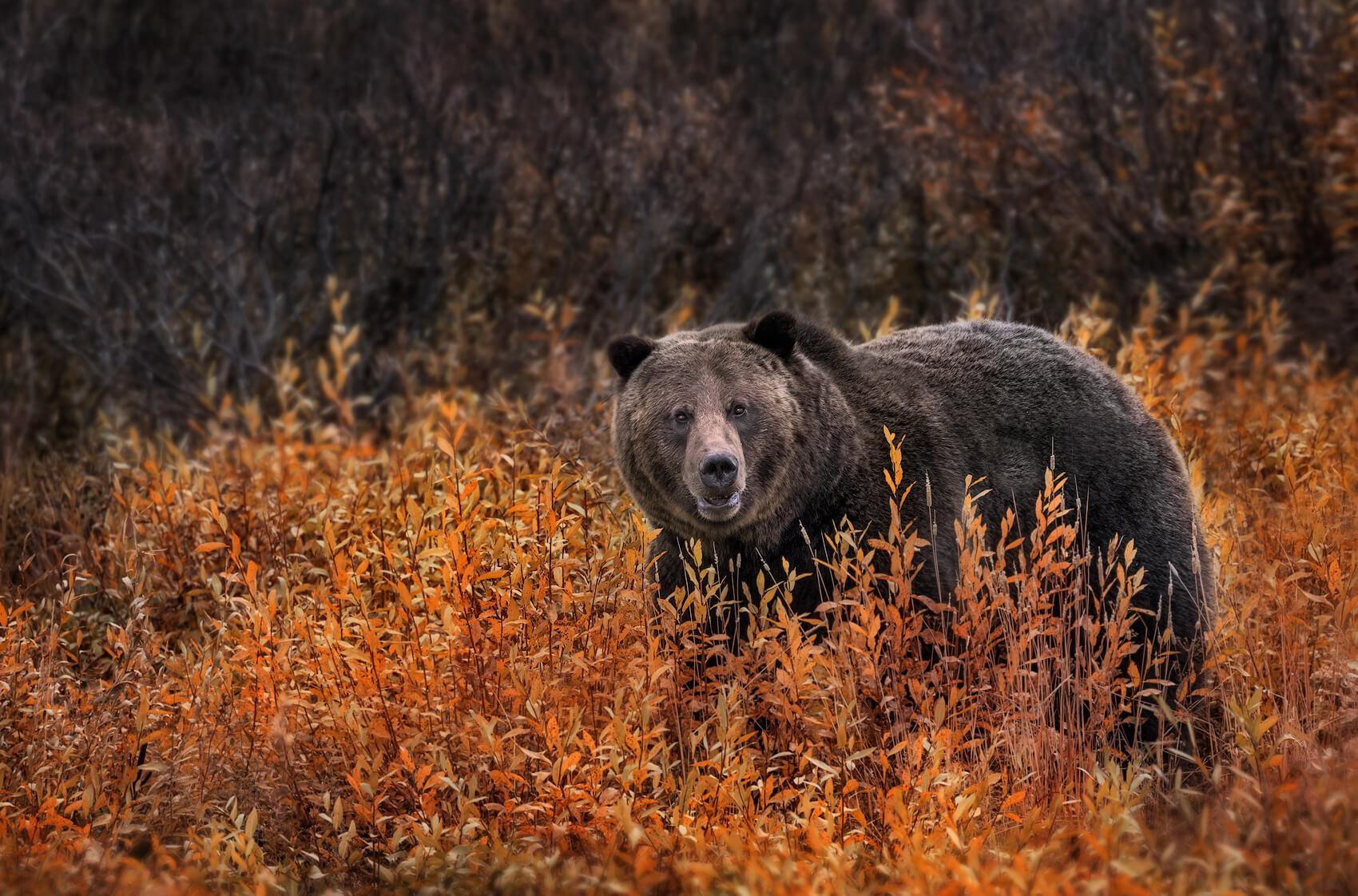What to do when visiting Bear Country
Photo courtesty of yellowstonepark.com
Bears. We see them in zoos, hear about them on the news, and there are lots of thoughts and opinions about these amazing and majestic animals.
But the main question we need to be asking is this: What should we be doing to be safe in bear country? For our safety and for theirs?
Here are a few things you can do to become more “Bear Aware” when traveling and visiting bear country.
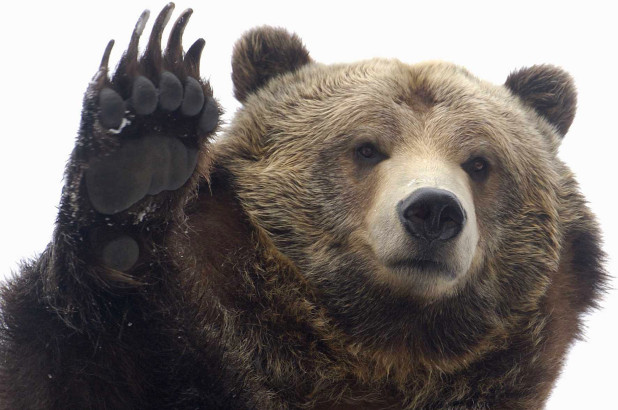
Photo courtesy of Central Park Zoo, NY
Learn About the Locals
Not every place you will visit in North America will have bears. But here in the northern rocky mountain region, we have two kinds: Black Bears and Brown Bears or Grizzly Bears. It’s a good idea to learn more about these two kinds of bears prior to visiting or camping in the northern rockies. It will help you enjoy your visit, and also help the bears have a healthier homelife.
In addition to learning about these two species of bears, it will help you to learn how best to have a positive experience with them. Just like when someone comes to visit your home, there is an expectation about respecting the space. The same is true when visiting public lands. It’s their home, and we as visitors need to respect that.
Also, in your research, call the park or land agency you are visiting for more up to date information about what kind of bears you might encounter. Each area will have more information that is current for where you might be camping or hiking. It is important to find out more and not just assume.
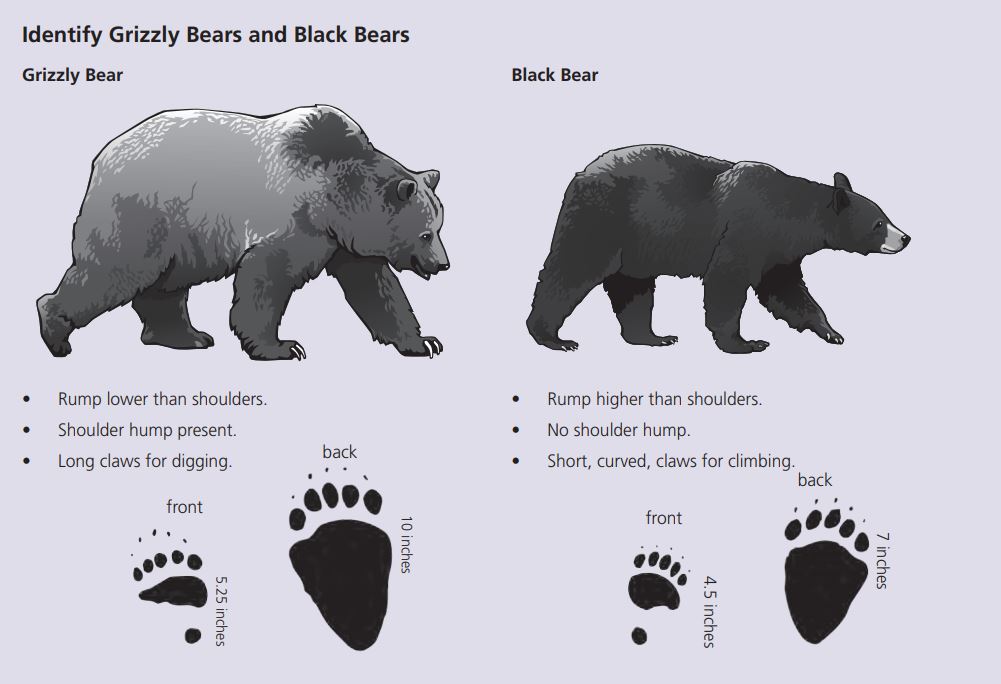
Photo courtesy of yellowstone.org
Showing Respect
Respecting the park or the land during your visit goes a long way in helping create positive bear interactions! For example, a bear’s nose is 20 times more powerful than a dog’s nose. So they can smell you AND all your food from a good distance. And trust me, it smells really good to them!
Making sure that your food is property stored and contained when you have left your campsite is a big deal. Many land agencies have specific criteria for how they want you to do it, so be sure to check in with them.
But some good ideas for a campsite would be simply to put all food things in your car or vehicle. It’s a lot harder for them to break into and takes the smellable things away from the places you will be sleeping. Some places have specific storage areas for all your food smellable things, so please use those that have been provided.
If you are backpacking, most agencies require some form of food storage system. It might be an electric bear fence, a bear cannister, or simply to hang your food up in a tree. Be sure to check with the land agency you are traveling in to see what the requirements are for that area.
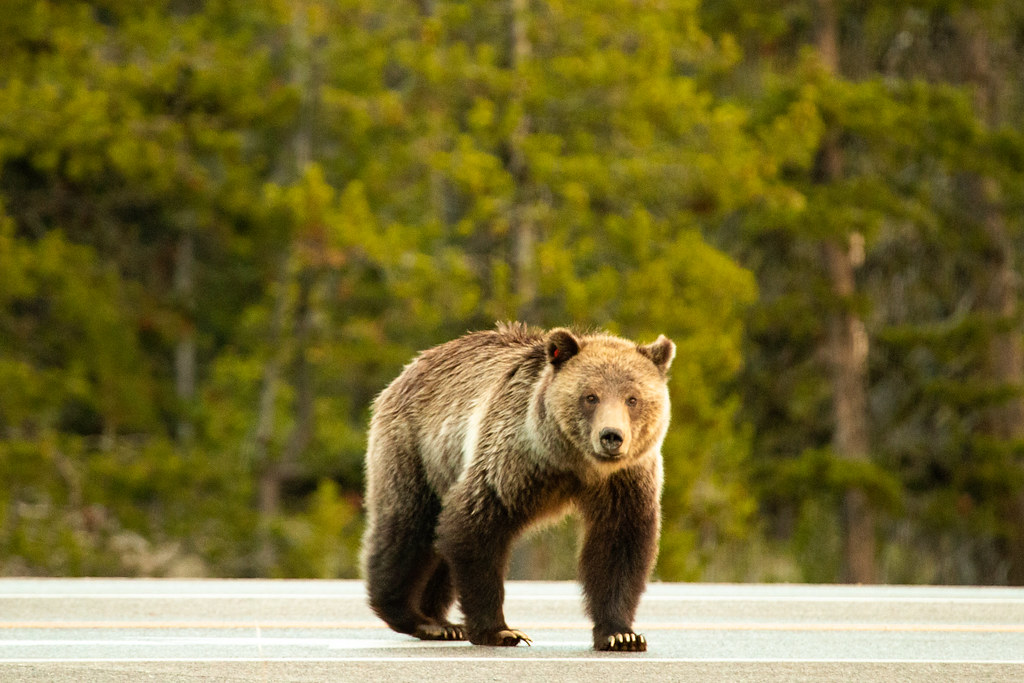
Photo courtesy of Teton National Park
“Hey Bear!”
There are times of the day and areas where you are more likely to have an encounter with a bear. And to be honest, they will likely be just as surprised by the experience as you are! Ideally, we don’t want to surprise a bear. And you are most likely to surprise them in the morning and at dusk when they are typically more active and in thick trees or brushy areas.
If you find yourself in such circumstances, being loud and noisy will help! Saying things like, “Hey Bear!” out loud will announce your presence to any bears or other larger animals that may be nearby. It may not be that fun to talk or sing loudly, but it will go a long way to helping you and the other wildlife choose the type of encounter to participate in.
Remember the rule of thumb: if you put your thumb up, and it covers the animal entirely, you are a safe distance away.
If you do encounter a bear, do not run and do not approach it. Approaching a bear can be taken as a sign of aggression. And that certainly isn’t what you want! And running from the bear tells it that you are prey- because prey typically run from predators. So if you run, it will likely trigger the bear’s predatory instinct. And they run fast, so you can’t out run them anyway.
But what should you do? Again, talk to it loudly. Make yourself seem bigger. Bears have great sense of smell, but not very good eyesight. Start walking slowly away, but never turn your back on the bear.
And also take out your bear spray. Yep, bear spray. It’s a very strong pepper spray that you can use if a bear starts to come towards you or decides to charge. It won’t cause permanent damage, but will go a long way to creating a negative interaction with a human so as to deter the bear from seeking out such an experience again.
If you do have a negative encounter with a bear, be sure to report it to the land agency you are visiting so that they may be able to help other visitors and monitor the bear as well.
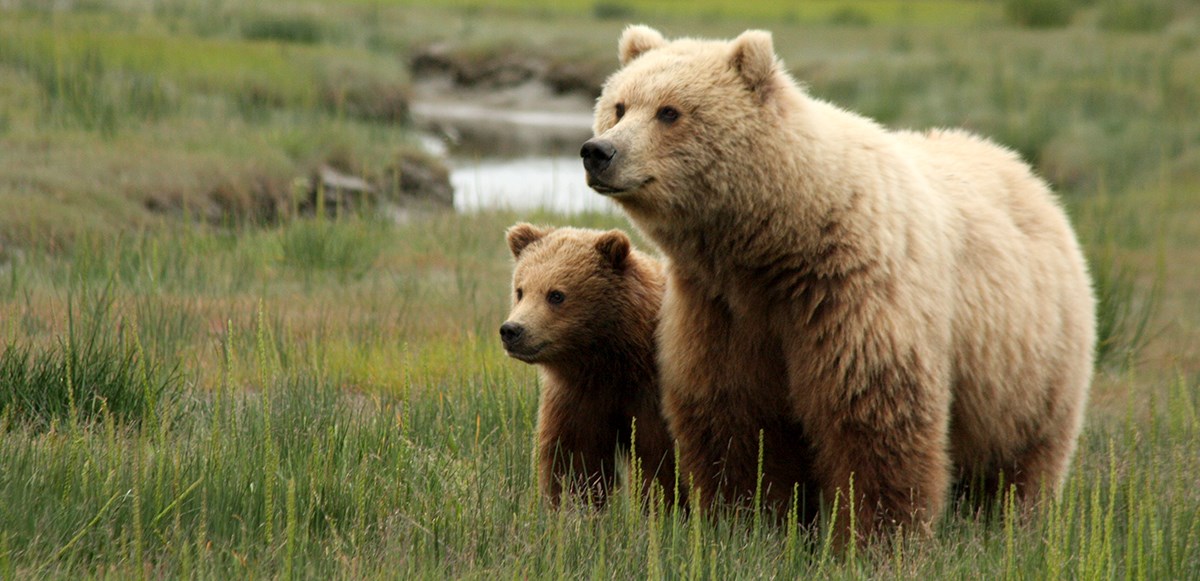
Photo courtesy of Lake Clark National Park & Preserve
Bears are such amazing creatures! But they are also very wild and untamed. It is important when we visit areas where bears live to show them the reverence and respect they deserve. And that includes monitoring our own behavior so as not putting ourselves or them in danger because of our own selfish desires and laziness.
Respect them enough to obey the rule of thumb, to keep your food away from them, and to not get close for that perfect photo shot. Because it is worth it to respect these animals and their space to just be in and observe their presence and leave it at that.
WANT TO EXPERIENCE MORE?
Check out an opportunity to learn and grow on a wild adventure – connecting with God, others, and your purpose.
